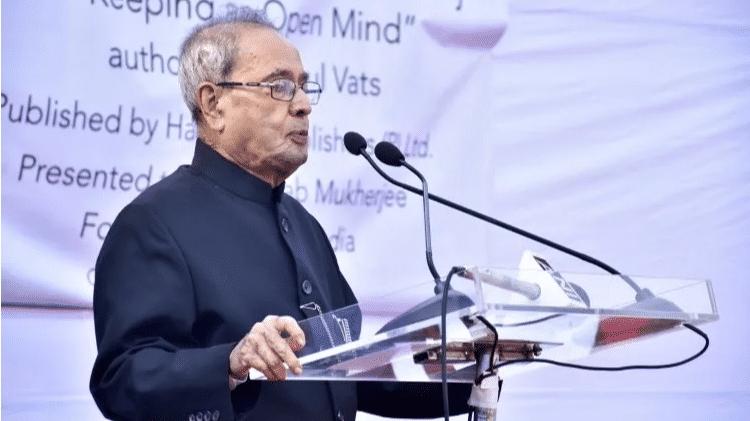“Today, I am here to share with you my understanding of the concepts of Nation, Nationalism, and Patriotism in the context of India, that is Bharat. These three concepts are so closely intertwined that it is difficult to discuss any one of them in isolation,” the then President of India Pranab Mukherjee had said addressing a gathering at the Rashtriya Swayamsevak Sangh (RSS) on June 7, 2018.
Also Read | Pranabda: chats, reprimands and riveting storytelling
Pranab Mukherjee’s decision to accept invitation for an RSS event was seen by many as an indignity for the Congress, the party he spent decades working for. Mukherjee’s message on India’s history of tolerance and pluralism showcased the quintessential statesman that he was.
Also Read | Pranab Mukherjee brought the President closer to the masses during his stint
As the 13th President of the country, Pranab Mukherjee worked with two prime ministers who had completely different styles of governance – Manmohan Singh and Narendra Modi – but that had little impact on his equation with them. The veteran leader’s command over his thought process, sharp memory and his unique ability of helping his party tide over tricky situations reflect in the books that he penned over the years. Here’s a short list of books authored by Pranab Mukherjee, who died on Monday:
The Coalition Years (Year of publication 2017): The book gives a detailed account of 16 years (1996-2012) of coalition politics in the country. Considered to be one of the most tumultuous periods in the political history of India, the era saw the emergence of multi-party rule at the Centre amid Congress’ declining popularity with the masses. Pranab Mukherjee played a keyrole in paving the way for Sonia Gandhi to resurrect the Congress as the party’s president. The Congress led UPA I and UPA II coalitions under her. The book is a recollection of Pranab Mukherjee’s stints in various ministries – Defence, External Affairs, Finance – during the UPA regime. The frankness with which Mukherjee has dealt with all the major events during his term in both the governments makes this book a must read.
Read: Pranab Mukherjee, Indira Gandhi loyalist and Congress’s man for all seasons
The Turbulent Years: 1980-1996 (Year of publication 2016): Known for his razor-sharp memory, Pranab Mukherjee, in this book, analyses the political, economic churn that the country went through between 1980 to 1996. The book opens to the time when Sanjay Gandhi died in a plane crash on June 23, 1980. From his shocking non-inclusion in the Rajiv Gandhi cabinet in 1984 to expulsion from the Congress in 1986 for six years, plenty happened in the political life of the leader. The part two of Pranab Mukherjee’s autobiography has an insider’s story on major events such as Operation Blue Star and the Babri Masjid demolition.
The Dramatic Decade: The Indira Gandhi Years (Year of publication 2014): In this book, Pranab Mukherjee chronicles events, challenges India faced during 1969-1980, including the Emergency and India-Pakistan war. Mukherjee laid the blame of Emergency on Siddhartha Shankar Ray, the then West Bengal Chief Minister, while underlining that it was erroneous to hold Indira Gandhi responsible for the step.
Thoughts and Reflections (Year of publication 2014): The book summarises Pranab Mukherjee’s views on a host of subjects and topics of his command. From economic policy, education to democracy and nation’s politics, in this book Mukherjee offers a unique anthology on issues contemporary India is dealing with.
Read: Pranab Mukherjee, former President, statesman, politician for 5 decades, dies at 84
Apart from these, Pranab Mukherjee, who was conferred with the India’s highest civilian honour Bharat Ratna in 2019, also has books – Congress and the Making of the Indian Nation (Year of publication 2011), A Centenary History of the Indian National Congress (co-authored with Aditya Mukherjee); Decentralised Planning and Panchayati Raj (co-authored with Malcolm S Adiseshiah); Beyond Survival: Emerging Dimensions of Indian Economy (1986) – to his credit.







